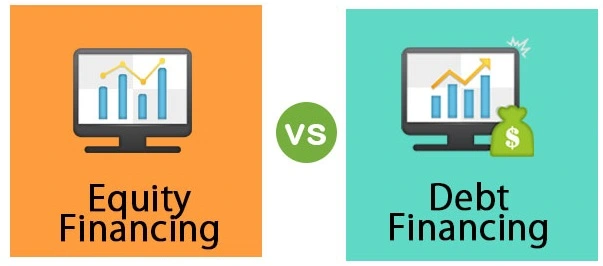Making the right financial decisions is crucial for businesses. Have you ever wondered how companies choose between raising funds by borrowing or selling ownership stakes? What factors influence their choice? This article will explore the differences between two popular methods: equity financing and debt financing. Understanding these distinctions can help businesses and investors make informed decisions that impact their financial future.
Incorporating the equity share meaning into this comparison allows businesses to understand how selling ownership can benefit them without taking on debt. Knowing the right strategy to adopt can significantly impact long-term sustainability and growth.
Differences Between Equity and Debt Financing

The core distinction between equity and debt financing lies in ownership and repayment. In equity financing, businesses do not have to repay the funds but give up partial control and share profits. Debt financing, in contrast, allows companies to retain full control but requires repayment, often with interest.
Here are some key points of difference:
- Ownership: In equity financing, investors gain part ownership, while in debt financing, lenders do not have ownership rights.
- Repayment: Debt financing requires repayment, whereas equity financing does not.
- Control: Equity financing dilutes control, while debt financing allows the original owners to retain full control.
- Risk: Companies that choose debt financing must manage their obligations carefully to avoid financial strain, while those opting for equity financing share profits and risks with investors.
Factors to Consider When Choosing a Financing Method
Companies should evaluate their goals and current financial situation when deciding between these two options. The choice often depends on factors such as:
- Business Stage: Startups often prefer equity financing because they may not have the cash flow to manage debt repayments. Established companies might lean towards debt financing if they want to maintain control.
- Cost of Capital: Debt financing can be cheaper in the short term if interest rates are low. However, equity financing may be more suitable for businesses that expect high growth and need substantial funding.
- Cash Flow: Businesses with irregular or uncertain cash flow may prefer equity financing since they do not have to worry about meeting fixed repayment schedules.
- Ownership Preferences: If maintaining control is crucial, debt financing is often the better option, as it does not involve giving up ownership stakes.
- Long-term Financial Health: Equity financing does not burden the company with debt, potentially leading to a more stable financial outlook in the long run.
Advantages of Equity and Debt Financing
Equity and debt financing each offer distinct benefits to businesses. Equity financing provides capital without repayment obligations, making it ideal for companies with uncertain cash flows. Investors also bring valuable expertise and connections, contributing to business growth. Additionally, equity financing reduces financial risk, as companies avoid the pressure of repaying loans, lowering the chances of default or bankruptcy.
On the other hand, debt financing allows businesses to retain full control, as lenders have no ownership stake. It also provides predictability through fixed interest rates and repayment schedules, aiding in financial planning. Moreover, debt financing offers tax benefits, as interest payments are often tax-deductible, making it a cost-effective option for businesses that want to grow without diluting ownership.
Making the Right Choice
Choosing between equity and debt financing after knowing the equity meaning and debt is not always straightforward. It depends on a variety of factors, including the company’s financial health, future growth plans, and willingness to share ownership. In many cases, a combination of both methods might be the best approach. This hybrid model allows businesses to balance risk and control while still accessing the funds needed for growth.
The equity share meaning provides insight into how ownership can influence business strategy, while debt financing offers a way to grow without relinquishing control. Understanding the differences between these two financings is essential for businesses seeking to grow and succeed. Decision-makers must evaluate their company’s needs and long-term goals carefully before making a choice. Ultimately, businesses must assess their situation and choose the financing method that aligns with their objectives.


